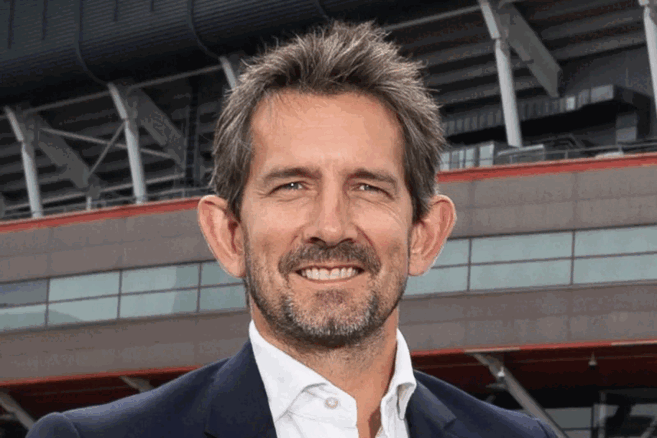 After three months of deliberation, BlackBerry has decided against selling itself to a consortium led by its largest shareholder, Fairfax Financial Holdings, for $4.7bn, and has instead opted to take a $1bn (£626m) low-interest loan from investors, of which Fairfax will contribute $250m. As part of the deal, CEO Thorstein Heins is stepping down as CEO, and has resigned from the BlackBerry board. As we reported earlier, Reuters has previously reported that Fairfax was struggling to raise the funds to complete the BlackBerry takeover.
After three months of deliberation, BlackBerry has decided against selling itself to a consortium led by its largest shareholder, Fairfax Financial Holdings, for $4.7bn, and has instead opted to take a $1bn (£626m) low-interest loan from investors, of which Fairfax will contribute $250m. As part of the deal, CEO Thorstein Heins is stepping down as CEO, and has resigned from the BlackBerry board. As we reported earlier, Reuters has previously reported that Fairfax was struggling to raise the funds to complete the BlackBerry takeover.
The $1bn loan takes the form of convertible debentures, which are convertible into common shares of BlackBerry at a price of $10 per common share. This represents a 28.7 per cent premium to the closing price of BlackBerry common shares on 1 November, 2013. Earnings-per-share, already low and falling, will now be even lower as shares are diluted to account for the potential of these investors to convert.
On conversion, the $1bn worth of debentures would represent around 16 per cent of BlackBerrys outstanding common shares. Should BlackBerry go bust, the loan will only be paid back after other fixed income holders are reimbursed.
CEO Thorstein Heins – who has been named in a separate lawsuit for misleading investors – will step down and along with David Kerr will resign from BlackBerrys board. John S. Chen, formely chairman and CEO of SAP’s Sybase, will be appointed executive chair of BlackBerrys board and act as CEO until a replacement is found.
Fairfax chairman and CEO Prem Watsa will be appointed lead director and chair of the compensation, nomination and governance committee.
Jan Dawson, chief telecoms analyst at Ovum, said the appointment of Chen, an enterprise software veteran, as chairman and interim CEO, suggests that Fairfax and others see the company’s future in software rather than devices.
“This makes sense in light of BlackBerry’s sputtering device shipments over the past few months, but it’s still not clear where that growth will come from,” said Dawson. “BlackBerry’s new investors seem to see its future in software, which means using BlackBerry servers as the core of a broader enterprise device management platform, but this generates very little revenue for the company today. Though it’s achieved some traction with enterprises upgrading their BlackBerry servers, it has failed to sell many BlackBerry 10 devices, and this looks unlikely to change. This ultimately harms the unique selling point of BlackBerry server products leaving the door open to replacement by rivals that are better able to support the more popular Apple and Android devices.
“At the same time, it’s also too much to expect BlackBerry’s other software investments to ramp up fast enough to secure its long-term survival and return to growth. QNX, whose main value was providing an OS for its devices, currently generates less than $100m a year. Equally, BlackBerry Messenger has had a good couple of weeks of downloads as a cross-platform messaging option, but continues to trail other similar messaging apps significantly.”
Dawson concludes: “Fairfax’s investment will buy the company some time, which it badly needs, but the company needs a new strategy more than ever. If Fairfax had taken the company private, it could have kept that strategy to itself. But with BlackBerry remaining a public company, Chen and Fairfax Chairman and CEO Prem Watsa need to start communicating that new strategy very soon to inspire confidence in a turnaround.”
















